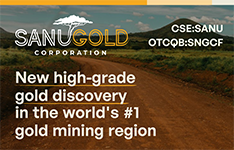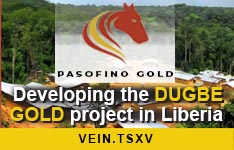The Life Sciences Report: Stephen, which drug class is generating the most excitement at this year's American Society of Clinical Oncology (ASCO) conference?
Stephen Dunn: The buzz at last year's ASCO conference surrounded the anti-PD-1 (programmed cell death protein-1) immune checkpoint inhibitor drug space. The buzz is even louder this year as more data is coming, including data on combination therapies. This space is dominated by large-cap pharmaceutical companies that are held in global portfolios. The reason for all the excitement is that the potential financial rewards of the anti-PD-1 pathway are large enough to move the needle on large-cap pharma stock prices.
In simplified terms, the PD-1 receptor pathway deactivates the immune system's T cells, allowing the tumor cells to survive. The drug candidates are monoclonal antibodies that block the PD-1 pathway, thus allowing the T cells to remain activated and kill the tumor cells. Other companies are developing an anti-PD-L1 (programmed cell death ligand 1) monoclonal antibody that blocks the ligand side of the pathway expressed by the tumor cell, versus the PD-1 receptor found on the T cell.
The high level of excitement around this space is that immune checkpoint inhibitors may apply to a very broad range of cancer types, as both monotherapies and combination therapies. The data we are seeing so far, including recently released ASCO abstracts, also indicates the mechanism works in patients who have failed previous cancer therapies.
TLSR: Who is going to get the first FDA approval for an anti-PD-1 drug?
SD: The very first anti-PD-1 scheduled to go in front of the U.S. Food and Drug Administration (FDA) for approval is Merck & Co. Inc.'s (MRK:NYSE) MK-3475 (pembrolizumab, formerly lambrolizumab), a humanized monoclonal IgG4 antibody directed against PD-1. It has an Oct. 28 Prescription Drug User Fee Act (PDUFA) decision date based on priority review under the accelerated approval pathway for unresectable and metastatic melanoma cancer patients that have failed prior treatment with Bristol-Myers Squibb Co.'s (BMY:NYSE) Yervoy (ipilimumab). Merck also expects to file a marketing authorization application for advanced melanoma in Europe by the end of 2014.
Merck's MK-3475 has 15 abstracts and six oral presentations at ASCO, with data for multiple indications. The most significant ASCO data for Merck was not released with the rest of the abstracts, but will be presented on June 2 as part of a late-breaking abstract session (abstract #LBA9000). The company will reveal the data on 411 advanced melanoma patients across the entire therapy spectrum, including Yervoy-failure patients, which is part of Merck's current FDA biologics license application (BLA).
Additional evidence that MK-3475 is effective in melanoma, and that PD-1/PD-L1 receptors may be used as biomarkers, is in abstract #3005. In 135 melanoma patients treated with MK-3475, objective responses were seen as late as 64 weeks, with some conversions to complete response as late as 72 weeks. The overall response rate was 41%. The median overall survival had not yet been reached, but the one-year survival rate for PD-L1-positive patients was 84%, and 69% in PD-L1-negative patients. However, abstract #3015 showed that baseline tumor size was the strongest independent prognostic factor in patients with metastatic melanoma treated with MK-3475.
The early non-small cell lung cancer data, contained in abstract #8007, showed that in a Phase 1 trial using MK-3475 monotherapy as first-line therapy in locally advanced or metastatic non-small cell lung cancer, the 45 patients treated had an objective response rate of 36% (pooled confirmed and unconfirmed). While the compound appears effective, it may best be used in a combination therapy in this setting.
Investors should note that Merck strongly believes MK-3475 is an entirely new oncology platform. The company is proceeding at full speed, with two dozen clinical trials in 30 different tumor types ongoing during 2014. Seven of these are late-stage Phase 3 clinical trials, including trials in advanced melanoma, advanced non-small cell lung cancer, advanced head-and-neck cancer and advanced bladder cancer.
Merck is also doing multiple combination therapy collaborations with MK-3475, including with Pfizer Inc.'s (PFE:NYSE) axitinib and PF-2566, Incyte Corp.'s (INCY:NASDAQ) INCB24360, and Amgen Inc.'s (AMGN:NASDAQ) T-Vec (talimogene laherparepvec).
TLSR: What is going on with Bristol-Myers Squibb? Wall Street thought this company would be first to market in the PD-1 space.
SD: Bristol-Myers Squibb's nivolumab (BMS-936558) is a humanized monoclonal IgG4 antibody directed against PD-1, and was seen as the frontrunner before Merck leapfrogged Bristol to be first in line for approval at the FDA in Yervoy-failure melanoma patients.
Bristol-Myers is going after third-line squamous cell non-small cell lung cancer using nivolumab monotherapy. The company intends to file its BLA with the FDA by year-end. Bristol's abstract #8112 shows data that will be part of the FDA filing, in which 129 patients treated with nivolumab alone had overall survival of 9.9 months across three different dosing regimens. The best results were in the 37 patients receiving the 3mg/kg, mid-range dose, with an overall survival of 14.9 months.
"Actinium Pharmaceuticals Inc. is developing Iomab-B for acute myeloid leukemia patients undergoing a bone marrow transplant."
Also of interest is abstract #8023, which shows Phase 1 interim results using nivolumab and Yervoy, the approved melanoma drug, as first-line treatment in squamous and non-squamous cell non-small cell lung cancer patients (using four dosing regimens). The combination showed an objective response rate of 22% (pooled confirmed and unconfirmed), with the best results using N3+I1 milligrams per kilogram (mg/kg) dosing (3mg/kg of nivolumab + 1mg/kg of ipilimumab) in squamous cell, with a pooled objective response rate of 63%. An odd result is that in 29 evaluable tumor samples, the objective response rate did not correlate with the PD-L1 biomarker.
A trial of 44 metastatic renal cell carcinoma patients, 77% previously treated, was described in abstract #4504. The nivolumab + Yervoy combination yielded objective response rates of 29% at N3+I1mg/kg dosing, and 39% in N1+I3mg/kg dosing. In these patients, it appears that the less nivolumab administered, the better the results.
Long-term follow-up data for 107 treatment-failure metastatic melanoma patients that were never treated with Yervoy showed three-year overall survival at 41% in abstract #9002. The one-year and two-year survival rates were 63% and 48%, so the results appear fairly durable.
In total, Bristol-Myers will have six oral presentations on nivolumab data at ASCO, including presentations on melanoma, non-small cell lung cancer and renal cell carcinoma in combination with Yervoy. The company is hedging its bets in a collaboration with Celldex Therapeutics (CLDX:NASDAQ), using nivolumab + varlilumab, an anti-CD27 monoclonal antibody, in a Phase 1/2 trial in multiple tumor types, including non-small cell lung cancer, metastatic melanoma, ovarian, colorectal and squamous cell head-and-neck cancers. The trials are to be conducted by Celldex.
TLSR: Any other players of interest in this space?
SD: AstraZeneca Plc (AZN:NYSE) is developing MEDI4736, an anti-PD-L1 monoclonal antibody. The company recently announced that it is jumping from a Phase 1 trial directly to a late-stage, Phase 3 trial in non-small cell lung cancer patients. In support of this decision was data in abstract #3001, which showed that in heavily pretreated solid tumor patients, three out of the 13 non-small cell lung cancer enrollees, or 23%, had partial responses. An expansion trial described in abstract #3002, for 151 patients with non-small cell lung cancer, melanoma, gastroesophageal cancer, hepatocellular carcinoma, pancreatic cancer, head-and-neck cancer and triple negative breast cancer, showed that tumor shrinkage was already detectable at six weeks in melanoma, pancreatic, head-and-neck, and gastroesophageal cancer.
"The potential financial rewards of the anti-PD-1 pathway are large enough to move the needle on large-cap pharma stock prices."
AstraZeneca is also taking a page out of the collaboration playbook and is doing a Phase 1 dosing trial with Incyte for a combination of MEDI4736 with Incyte's INCB24360. The non-exclusive agreement covers melanoma, non-small cell lung cancer, head-and-neck cancer and pancreatic cancer, and the trials will be conducted by Incyte.
Another player is Genentech/Roche Holding AG (RHHBY:OTCQX), which is developing MPDL3280A, also an anti-PD-L1 monoclonal antibody. MPDL3280A is currently in a late-stage Phase 3 trial in metastatic non-small cell lung cancer patients who have failed prior chemotherapy, as well as in several earlier-stage trials in multiple tumor types. Data from the company's Phase 1 trial in metastatic bladder cancer is shown in abstract #5011, which showed there was a 50% objective response rate (one complete response and nine partial responses) in the 20 patients with PD-L1 overexpressed tumors. Metastatic bladder cancer has a poor prognosis and limited treatment options, so this indication should be watched closely by investors.
TLSR: Is there anything outside the PD-1 space that excites you?
SD: Incyte's immunotherapy drug, INCB24360, is not an anti-PD-1 drug, but rather an oral IDO1 (indoleamine 2,3-dioxygenase-1) inhibitor. IDO1 is an enzyme that suppresses the immune system from attacking tumor cells. The fact that this drug can be taken orally makes it an attractive alternative in the space, and Incyte is conducting Phase 2 trials in melanoma and ovarian cancer. IDO1 is a different pathway from PD-1, but because it also works to uncloak the tumor cell from the immune system, it could be synergistic with PD-1. It should be no surprise that Merck and AstraZeneca are doing INCB24360-combination collaborations with their PD-1/PD-L1 drugs.
Abstract #3010 showed data from a Phase 1/2 trial testing Yervoy in combination with Incyte's INCB024360 in metastatic melanoma, which showed three of eight patients (38%) with a confirmed partial response, and a confirmed disease control rate of 75% (six out of eight patients). While the high-dose arm (300mg twice daily) was already known to cause liver toxicity, this new data shows the low dose (25mg twice daily) of INCB024360 with Yervoy was generally well tolerated. Data for the mid dose (50mg twice daily) was not disclosed, but we expect to see some safety and efficacy data at ASCO.
TLSR: Do you expect any controversies to be discussed during ASCO?
SD: Overall spending on cancer drugs is closing in on $100 billion ($100B) per year globally, according to IMS Health Inc. Although not yet a serious problem, drug developers know that eventually reimbursement pushback will become a significant obstacle. Wall Street is continuously on the lookout for signs of reimbursement friction, and that will certainly be a topic of discussion at ASCO.
"The high level of excitement around this space is that immune checkpoint inhibitors may apply to a very broad range of cancer types."
One example to keep an eye on is Merrimack Pharmaceuticals Inc. (MACK:NASDAQ), which just announced Phase 3 data for its pancreatic cancer drug candidate MM-398 (liposomal irinotecan). The Phase 3 trial for gemcitabine-failure patients had treatment arms of MM-398 monotherapy and MM-398 combined with 5-fluorouracil (5-FU)/leucovorin versus a control arm of 5-FU/leucovorin. The MM-398 monotherapy arm had an overall survival of 4.9 months versus 4.2 months for the control arm, but that was not statistically significant (p=0.942). The MM-398 combination arm demonstrated 6.1-month survival, for a 1.9-month benefit, and was statistically significant (p=0.012).
The first concern is that the control arm did not contain irinotecan with the 5-FU/leucovorin, so we have no way of knowing if MM-398, which is liposomal irinotecan, is any better than generic irinotecan. The second concern is if the 1.9-month benefit is enough for FDA approval. I believe the FDA will ultimately approve MM-398, as a 1.9-month benefit is meaningful in this difficult-to-treat patient population. However, MM-398 will be vulnerable to reimbursement pushback if the much-cheaper generic irinotecan could work just as well, and a comparative effectiveness study could derail sales projections. Wall Street is clearly concerned, as investors are shorting approximately 30% of Merrimack shares.
TLSR: Is any company addressing reimbursement friction correctly?
SD: One company properly addressing this exact issue in its late-stage Phase 3 trial is Celator Pharmaceuticals (CPXX:NASDAQ). Celator's drug candidate, CPX-351, is a liposomal formulation of two drugs, cytarabine + daunorubicin, in a 5:1 molar ratio for first-line treatment of untreated high-risk secondary acute myeloid leukemia (AML), which has a poorer prognosis than primary AML. Fortunately, the study control arm is the current standard of care, cytarabine and daunorubicin 7+3 regimen, so there will be no doubt that CPX-351 is superior to the current first-line, standard-of-care therapy. The Phase 3 trial is currently 70% enrolled, with complete enrollment expected by year-end. Investors should note that this is one of the few liposomal drug formulations under development that is designed to increase efficacy and not just safety, which would bode well for pricing and reimbursement.
TLSR: Are there any other small-cap companies of interest in the cancer space?
SD: While not a direct competitor to Celator, Sunesis Pharmaceuticals Inc.'s (SNSS:NASDAQ) vosaroxin is also in a late-stage Phase 3 trial, but as a second-line treatment in combination with cytarabine for relapsed or refractory acute myeloid leukemia. Vosaroxin is an antineoplastic quinolone derivative that is not a P-glycoprotein (P-gp) substrate, and may avoid the P-gp-mediated drug resistance seen in anthracyclines. The company expects to announce the Phase 3 data later this year.
For acute myeloid leukemia patients undergoing a bone marrow transplant, Actinium Pharmaceuticals Inc. (ATNM:OTCQB) is developing Iomab-B, a combination of the monoclonal antibody BC8 and a beta-emitting radioisotope iodine-131. The company will soon begin a late-stage Phase 3 trial with Iomab-B added to reduced-intensity conditioning, allowing for normally unsuitable patients with relapsed and refractory AML to successfully receive bone marrow transplants. The company's earlier-stage candidate, Actimab-A, is currently in a Phase 1/2 trial in combination with cytarabine for patients 60 years and older who are unsuitable for intensive chemotherapy. The company expects interim Phase 2 data to be announced later this year.
TLSR: Thank you for your time, Stephen.
SD: Thank you.
LifeTech Capital President and Senior Managing Director of Research Stephen Dunn was previously the managing director of Life Sciences Research at Jesup & Lamont, as well as director of research for Dawson James Securities and director of Life Sciences at Cabot Adams venture capital group. He has held management positions in business development, finance and operations, having worked in more than 25 countries in North America, Europe and the Far East with biomedical companies including Beckman Coulter, Coulter, Cordis (Johnson & Johnson) and Telectronics (St. Jude Medical), as well as several smaller companies. With more than 25 years in the global biomedical industry, Dunn has negotiated numerous intellectual property licenses, product development agreements, venture funding, mergers and acquisitions and joint ventures. Dunn is a five-star biotechnology analyst on StarMine and has appeared in both the financial and scientific media, including The Wall Street Journal, CNN, Newsweek, Forbes, Nightly Business Report, Nature Biotechnology, The Scientist, BioWorld and many other media outlets. He is a frequent speaker and panel member for many financial, medical and venture capital events.
Read what other experts are saying about:
Want to read more Life Sciences Report interviews like this? Sign up for our free e-newsletter, and you'll learn when new articles have been published. To see a list of recent interviews with industry analysts and commentators, visit our Streetwise Interviews page.
DISCLOSURE:
1) George S. Mack conducted this interview for Streetwise Reports LLC, publisher of The Gold Report, The Energy Report, The Life Sciences Report and The Mining Report, and provides services to Streetwise Reports as an independent contractor. He owns, or his family owns, shares of the following companies mentioned in this interview: None.
2) The following companies mentioned in the interview are sponsors of Streetwise Reports: Actinium Pharmaceuticals Inc. Streetwise Reports does not accept stock in exchange for its services.
3) Stephen Dunn: I own, or my family owns, shares of the following companies mentioned in this interview: None. I personally am, or my family is, paid by the following companies mentioned in this interview: None. My company has a financial relationship with the following companies mentioned in this interview: None. I was not paid by Streetwise Reports for participating in this interview. Comments and opinions expressed are my own comments and opinions. I had the opportunity to review the interview for accuracy as of the date of the interview and am responsible for the content of the interview.
4) Interviews are edited for clarity. Streetwise Reports does not make editorial comments or change experts' statements without their consent.
5) The interview does not constitute investment advice. Each reader is encouraged to consult with his or her individual financial professional and any action a reader takes as a result of information presented here is his or her own responsibility. By opening this page, each reader accepts and agrees to Streetwise Reports' terms of use and full legal disclaimer.
6) From time to time, Streetwise Reports LLC and its directors, officers, employees or members of their families, as well as persons interviewed for articles and interviews on the site, may have a long or short position in securities mentioned. Directors, officers, employees or members of their families are prohibited from making purchases and/or sales of those securities in the open market or otherwise during the up-to-four-week interval from the time of the interview until after it publishes.








































